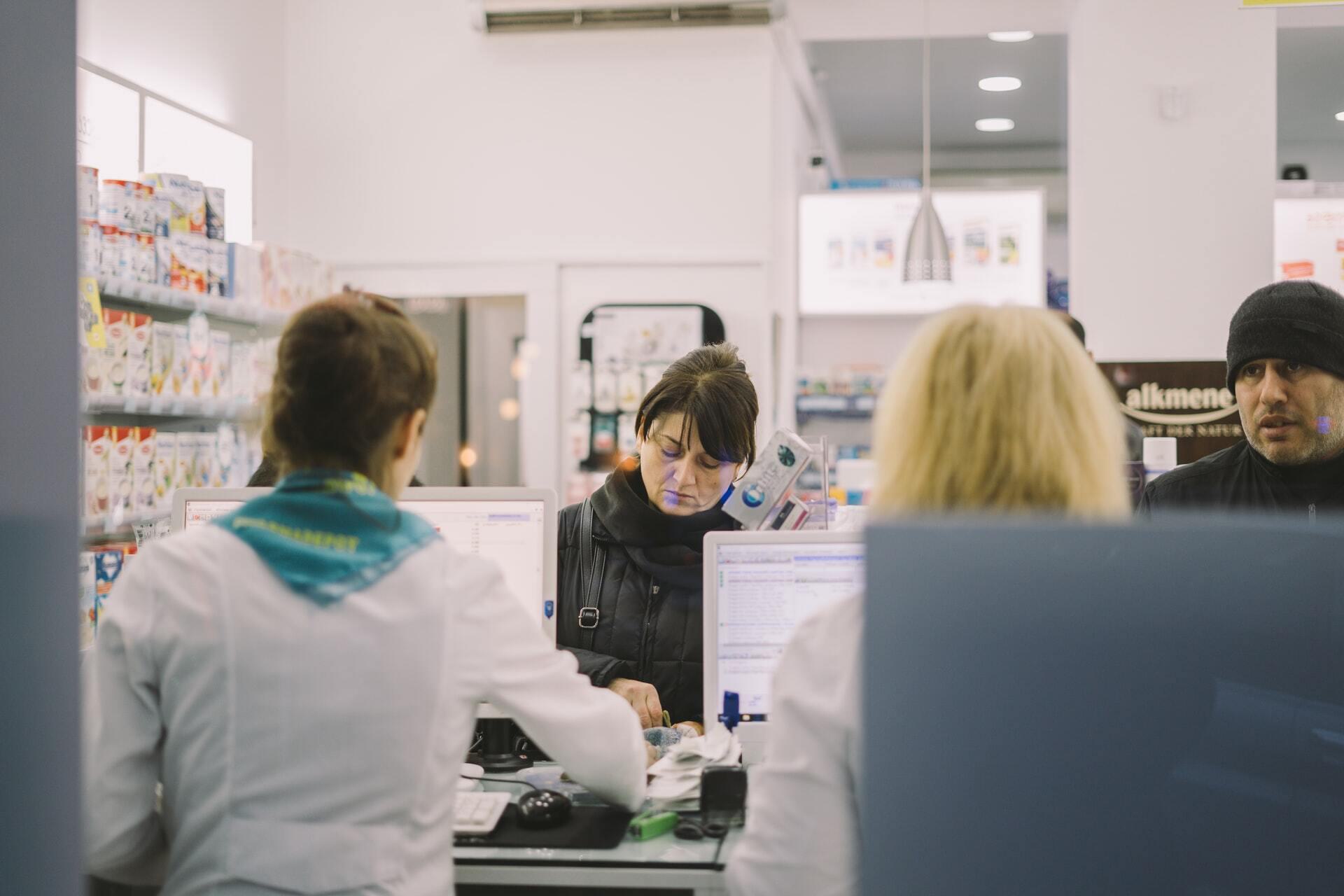
Can tax policy build a better society? Governments considering ways to use taxes to shift social behaviour certainly believe it is worth a try.
The idea of taxes on cigarettes is one that most of the world’s 1.1 billion smokers have come to expect.
Only one in 100 smokers live in a country with no cigarette tax, and the annual global tax take is now estimated to exceed US$328 billion.
Alcohol taxes are also common. Almost all countries impose excise on at least one tier of beer, wine or spirits, including Iceland, which tops the world with a tax rate per litre of 100% alcohol nearing 100 per cent.
Policy makers have seen the effectiveness of smoking and alcohol taxes and are looking at other options to tax the sinner or reward the saint.
In the lucrative business of sin taxes — applying excises or taxes to behaviour governments would like to curb — drinking and smoking remain the staple targets.
But around the world policy makers who have seen their effectiveness are looking at other options where they could tax the sinner or reward the saint, from sugar, salt and fat to the use of plastics and planes.
Sin taxes are a relatively new concept, and are related to Pigouvian tax — named for the 1920s economist Arthur Pigou who tried to balance the side effects of positive and negative behaviour by looking at how these might be accounted for in society.
At the time, when pollution was largely unchecked and the UK was still experimenting with ways to raise revenue, the British economist wrote a seminal work about ‘externalities’ — the impact of different behaviour on society at large.
Some of those externalities were positive.
“… Uncompensated services are rendered when resources are invested in private parks in cities; for these, even though the public is not admitted to them, improve the air of the neighbourhood,” Pigou argued.
“Lamps erected at the doors of private houses … necessarily throw light also on the streets.”
But the impact of poor social behaviour created costs that required compensation, he wrote, from the factory owner who polluted the air or whose buildings blocked out the light to the mother who needed to work to alleviate poverty but potentially put her children at risk.
Pigou’s reasoning has gone in and out of vogue, but he’s been cited in discussion of policies as diverse as carbon taxes and cap-and-trade pollution credits to Japan’s annual measurement of waistlines to curb national obesity.
The fine line between effective taxation and damaging an economy
In most countries, taxing negative behaviour has focused on cigarettes and alcohol, says Howard Badger, Partner in the Tax Consulting Group with Australian Baker Tilly firm Pitcher Partners.
“If you think back to the 80s, you probably remember that in budgets every year they raised the taxes on alcohol and cigarettes for what seemed like forever,” he says.
“So we’ve got substantial cigarette taxes and alcohol taxes, which I think have probably reached a reasonable stage.
“If you think about the GST’s design it is trying to encourage people to do the right thing and eat in a healthy way.”
“But you also have a system where there are lower rates on wine and beer and higher rates on some other drinks with higher levels of alcohol.”
Australia lacks taxes on salt and sugar, although there have been repeated calls from health groups for them to be introduced, but does impose a goods and services tax on processed rather than fresh food.
“If you think about the GST’s design it is trying to encourage people to do the right thing and eat in a healthy way,” Mr Badger says.
Australia’s commodity-driven economy makes it disinclined to impose too many taxes on raw materials, he says, and while its cigarette taxes are among the highest in the world there’s little appetite to start imposing other taxes on food.
“We produce a lot of sugar and sometimes our sugar farmers struggle. We have seen compulsory buying of sugar to make ethanol and there have been various schemes to provide them a form of support. So I think it would be very un-Australian to impose a tax that could hurt those farmers,” he says.
“The same goes for beef. The way our economy is structured, applying those taxes at the end point would politically be considered a direct attack on Australia’s basic economic pillars.”
Hard to argue against benefits, easy to get addicted to revenue
The advantage for governments imposing most sin taxes is that they are hard to criticise — and lawmakers can position themselves as acting on public health or social policy while creating a lucrative revenue stream.
But the approach can become a political minefield if the tax take becomes too broad.
“The way I look at it is, taxation is something that is fine when someone else is paying it,” says MHA MacIntyre Hudson Tax Partner Nigel May.
“Within a political sphere, the attraction of sin taxes is that they are a way to raise money which carries low political risk. You can look at it from the viewpoint of tobacco taxes, cannabis taxes, alcohol taxes — they are trying to change behaviours, but also it is a way the government can raise revenue without the political problems that go with general taxation.”
Once that income stream is in place, however, governments themselves can become addicted.
“Once you’ve generated for yourself an income stream it is very difficult to cut that income stream off without looking to raise that revenue from another source,” says Mr May — pointing to the example of e-cigarettes or vaping, which are currently taxed only at VAT rates in the UK, but could potentially be taxed more in the future.
Canada, which has increased restrictions on vaping, is poised to introduce a vape tax in some states this year, and an estimated 10 other countries apply some level of excise.
“If one took vaping as a case-in-point, governments are generally very good at spending the money that comes in through the tax system,” Mr May says.
“Once you’ve actually started raising reasonable sums of money through a vaping tax, is any government going to say, ‘well no, we’re going to make vaping illegal’.
“You then have to go back to the general taxpayer and say that we made this illegal, you are going to bear the tax burden that has previously come from that source.”
As taxes start to take hold, they can spur criminal behaviour as well.
An estimated US$40 billion is lost annually in cigarette excises to smugglers, according to the WHO, and even emerging sectors like the sale of cannabis in California have seen a thriving black market spring up, valued at four times the legal market.
“Taxes create economic behaviour, and black market activity is understandable, albeit illegal,” he says.
“Until we get to a point in which governments are able to act collectively with regards to taxation policy, you’re always going to have the unintended consequences of sin taxes.”
There is also an argument, Mr May says, about sin taxes ceasing to be progressive over time.
Smoking is a good example and he points to Australia, where nearly 900,000 smokers have quit after decades of successive price rises.
Where around half of all Australian adult males and a quarter of adult females smoked in the 1970s, it’s now a small group of about 13 per cent who remain smokers despite facing some of the most expensive cigarette taxes in the world.
“Smoking is very, very, very low in Australia,” Mr May says.
“So the people that are still smoking are the ones who are either intractably addicted to it, or perhaps the lowest socio economic group. It’s not really a progressive tax at that point.”
Keen to be green: Governments tapping the sin tax well
While health has been the motivator behind most sin taxes, improving the environment offers a new scope for lawmakers wanting to shift the social conscience.
Ireland led the globe with a plastic bag tax in 2002, almost overnight cutting single-use bags by 94 per cent (though bin liner sales skyrocketed in response.)
In the UK, the first six months of the 5p plastic bag tax saw a remarkable six billion drop out of circulation.
Ireland is now looking at a so-called latte levy, of 10 to 25 Euro cents a cup, to slash the 22,000 single-use coffee cups sold each hour. The UK Treasury has consulted on a proposal to tax plastic packaging with less than 30 per cent recycled content.
In France, plans for an eco-tax on airfares are well progressed, applying to all flights out of the country, while fashion manufacturers are beginning to gear up in case they get hit with similar taxes on unsustainable clothes.
And then there’s meat.
Contributing 7.1 gigatonnes of emissions to the atmosphere each year, the livestock sector is on the radar of governments looking to curb their carbon, but — so far — there are few specific taxes imposed on the sector for environmental reasons.
That could change under a German proposal put forward in 2019 by members of the Social Democrats (SPD) and Greens to raise the VAT on beef, not to tackle emissions but to see a reinvestment of funds in the welfare of animals.
The position is not entirely isolated — a group by the name of the True Animal Protein Price Coalition is lobbying EU governments across the board to apply what it calls a European sustainability charge for meat that would also push up meat taxes.
The goal of the German proposal would be help farmers restructure, at a time when meat production in Germany is being criticised for its thin margins.
“On the one hand, some people think it is a good idea with respect to the improving the circumstances in which animals live, and in respect of climate issues, cows in particular are seen as a factor in high emissions,” says Ines Paucksch, a Partner with Baker Tilly Germany.
“The proposal wasn’t a special tax but a change to the VAT system, because right now the VAT on fresh meat is 7 per cent and the idea would be to increase the VAT rate from the reduced rate to 19 per cent, the standard rate.”
Germany’s VAT system is already influenced by different lobby groups, Ms Paucksch says, so while most fresh food is at the reduced rate, beverages are often at the higher rate.
“It’s not always logical how food is treated,” Ms Paucksch says.
“The idea of the SPD and the Greens is that the increase in tax should work together for the good of the animals and to improve climate, so that farmers would either receive funds to improve the life circumstances of the animals or, if they can, restructure their farming business and potentially reduce the number of cows.”
The logistics of collecting, allocating and redistributing tax funds would be both complex and potentially impossible under existing law, Ms Paucksch says, underscoring why such a tax remains a distant prospect.
“You can’t say this special tax receipt will be allocated to reduce the number of cows in Germany — that’s just a theoretical position at the moment,” she says.
“When you look at the environment, there are other ways the government helps direct the response through tax but it is obviously easier to have a concrete link between tax benefits, for example, and electric cars.
“Will people buy the meat if it is more expensive? Will they look at buying cheaper meat that might be less efficiently produced? If your plan means that people turn away from less sustainable meat to cheaper meat with industrial farming that is counter-productive.”
Plastic is far from fantastic, with estimates that as many as 12 million tonnes of plastic end up in our oceans each year. It’s a truly global issue, with a mid-year bill put before British Parliament advocating for a ‘sin tax’ on single use plastic cutlery, while India wrestles with the more-than 25,000 tonnes of plastic it produces each day – 40 per cent of which is neither collected nor recycled. Countries like Australia, which once exported much of its waste to China, now face themselves dealing with a potential plastic crisis due to China’s ban on recycling. The question, it seems, is not so much whether there should be a plastic tax but how it should be priced. A report by Imperial College London suggests the figure should be as much as £150 per tonne.
The statistics around the global prevalence of obesity and diabetes are stark: the former is estimated by the World Health Organisation to have tripled since 1975, while the latter has increased by about 80 per cent since 1980. Sugary drinks have long been considered a major contributor to this worrying situation and have so far proved the “low hanging fruit” for regulators. Mexico is estimated to have raised as much as $2.6 billion over the first two years of its sugar drink tax, versions of which have now also been introduced in the UK, France, Norway and Germany (where alcoholic pre-mix drinks are being targeted). The question now is whether authorities are prepared to go a step further and push back against a well-resourced industry and its powerful lobbyists by pairing a snack tax with the drink levy.
How many times today have you seen someone walking the street with a takeaway coffee cup or sipping from a bottle of water? It’s hard to think of a more obvious targets for either taxation or inducements to change our behaviour but it remains difficult to engineer a cohesive approach to the issue. In the UK, Scotland seems intent on pressing on with its planned deposit return scheme but their English neighbours are lagging comparatively on the introduction of theirs – and even once it is in place, there are concerns about whether both schemes will “talk” to each other. Meanwhile, an English proposal to introduce a 25 pence “latte levy” on single-use coffee cups was canned just days after coffee giant Costa suggested coffee drinkers were being deliberately targeted and questions whether such cups could be genuinely assessed as “single use”.
When Coldplay announced last month that they would cease touring because of concerns that they couldn’t make their schedule carbon-neutral, it wasn’t just a great piece of PR for the band – it also elevated public awareness for an issue that is increasingly being considered by authorities. With airlines under pressure over their heavy carbon emissions, France this year joined Sweden in imposing an eco-tax on air travel. The French version isn’t as punitive as the Swedish impost – €1.50 per flight as opposed to €40 – but it’s set to create quite the revenue boost, an estimated €180 million per year that will be put towards ‘greener’ infrastructure spend. But it’s not only governments taking action. In October, Air France announced that it would get in on the act by offsetting the carbon dioxide emissions of its estimated 500 daily internal flights by 2020.
While no jurisdiction has enacted meat taxes, the idea has been proposed for some time, by animal activists, climate scientists, academics, and health researchers. In August, MPs from Germany’s SPD and Greens parties proposed raising the VAT on meat from 7 per cent to 19 per cent, putting it in the same category as most goods other than books or food. While the proposal has farmers and the meat industry nervous, the more immediate threat for the European agriculture sector could be the imposition of new tariffs between familiar trade partners, with the European Livestock and Meat Trades Union warning of average tariffs of 50 per cent in the case of a hard Brexit.
Taxes on cigarettes have been a staple in almost all countries, ranging from nearly 90 per cent of the retail price in Chile (which is trying to reduce one of the highest smoking rates in the Americas) to about 40 per cent in the US, according to the OECD. Australia’s percentage tax on cigarettes is not enormous in global terms (just under 60 per cent) but the base cost of cigarettes is the highest in the world. It means that in 2017, a packet of 20 cigarettes in Australia was second only to New Zealand in price — the equivalent of US$16 compared to US$19.50 in New Zealand. The same-sized pack would cost around US$12 in Britain and Ireland, US$10 in Western Europe, under US$5 in Eastern Europe and as little as US$3 in Mexico. Since 2017, Australia has increased taxes by a further 12.5% a year. By 2020, a pack-a-day smoker will pay the equivalent of nearly US$8500 a year.
The use of e-cigarettes is estimated to have grown to a market worth nearly $20 billion, with half the market concentrated in the US, UK and France. While it is credited with helping traditional smokers quit, the spread of vaping among ‘new’ users has prompted concern. The US Surgeon General has estimated the rise in use among high school students has grown so fast that as many as one in five were recent users. While some jurisdictions including California have moved to ban their use altogether, others are trying to curb the practice with taxes. As of June 2019, 15 states have enacted taxes on vaping with Minnesota applying a 95% tax on wholesale prices, while Vermont applies a 92% tax.









